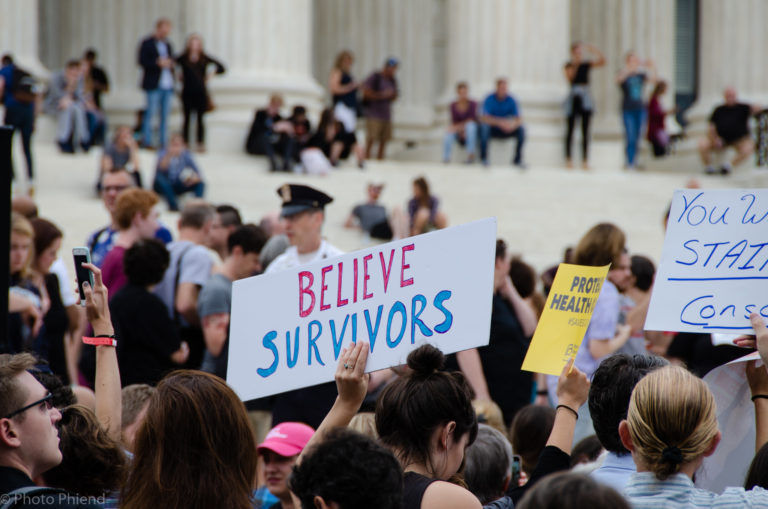A former George Mason University law professor and FTC commissioner, Josh Wright, has sued several of his former students who accused him of sexual misconduct and exploitation for defamation. He's seeking over $100 million in damages. (As I understand Wright's position, he admits to having engaged in sexual relationships with several of his students but denies any form of abuse or exploitation). This has some resonance with Johnny Depp's lawsuit against Amber Heard where he largely successfully convinced a jury that Heard had defamed him upon accusing him of domestic abuse.
Cases like this have an interesting character; one that poses special danger towards defendants and, by extension, potentially make leveling accusations of things like sexual misconduct or domestic abuse especially fraught.
Truth is an absolute defense to a defamation claim. But establishing falsity is not normally sufficient for a plaintiff to win a defamation claim. Even a defendant who utters a false statement still can't be held liable for defamation unless they exhibited some sort of culpable disregard for the truth. Where the target is a public figure, the standard is known as "actual malice" -- a requirement that the false statement be uttered with either knowledge of its falsity or reckless disregard for whether it is true or not (for non-public figures, this standard may be relaxed). So there are many circumstances where a jury might believe that an allegedly defamatory statement is indeed false, but still will not assign liability -- for example, if they think the speaker made an honest mistake or a regular poor judgment.
But a sexual assault claim by the putative victim is different, because by definition the victim has firsthand knowledge of what happened. If the attack happened, then her accusation is true, and there's no defamation (truth as an absolute defense). But if the jury concludes the attack didn't happen, then the defamation claim essentially succeeds by default, because if the attack didn't happen then the "victim" must have known the attack didn't happen, rendering her allegation knowingly false. In other words, in a defamation case regarding a firsthand accusation of sexual assault, the entire case resolves down to the jury's judgment about whether they believe the accuser or the accused. If they believe the latter, then -- despite the normally additional hurdles put up by the "actual malice" standard and its cousins -- defamation is essentially a strict liability offense.
This prospect, one imagines, is yet another deterrent to sexual assault victims going public with their accusations. We speak a lot about the propensity (or not) to "believe women", and how widespread tendencies towards disbelief deters victims of sexual abuse from coming forward. In the public square, it is essentially inevitable that -- regardless of the underlying truth of the allegation -- there will be some cadre of observers who will believe the accusation and some cadre who disbelieve. One reason a victim might not directly seek legal recompense from their attacker is because they lack confidence that a jury will be comprised entirely of believers, and so the effort will come to naught. In the court of public opinion, a victim may in practice come to terms with the fact that some will believe her and others won't; speaking her piece and letting the chips fall where they may. She may, in other words, be well aware that some significant quotient of listeners will not believe even her true story and be willing to ensure that prospect as a cost of speaking her truth.
But the aspect of defamation law I'm flagging here means that victims cannot simply opt out of the legal process. The victim who wants to speak but do nothing else still is automatically exposed to potentially ruinous liability in any circumstance where a jury is comprised of disbelievers -- and disbelief is all it takes (the additional guardrails offered by doctrines like "actual malice" do not apply). The woman who is willing to endure a significant cadre of the public disbelieving probably will not be so sanguine about that disbelief translating into financial catastrophe.
If one has strong confidence in juries being able to sort truth from falsehood in cases like this, then this may not strike you as much of a problem. But in general, I suspect one reason why defamation law normally has these guardrails beyond "is the statement true or not" is because we understand juries are not perfect and that there needs to be wiggle room in hotly contested cases. And in specific, I suspect that defamation claims around sexual misconduct are cases where we may be especially likely to see significant error rates. Low confidence in accurate judgments surrounding truth or falsity, combined with an effective strict liability regime for statements adjudged to be false, equals a very strong deterrent to speaking out in the first place.


